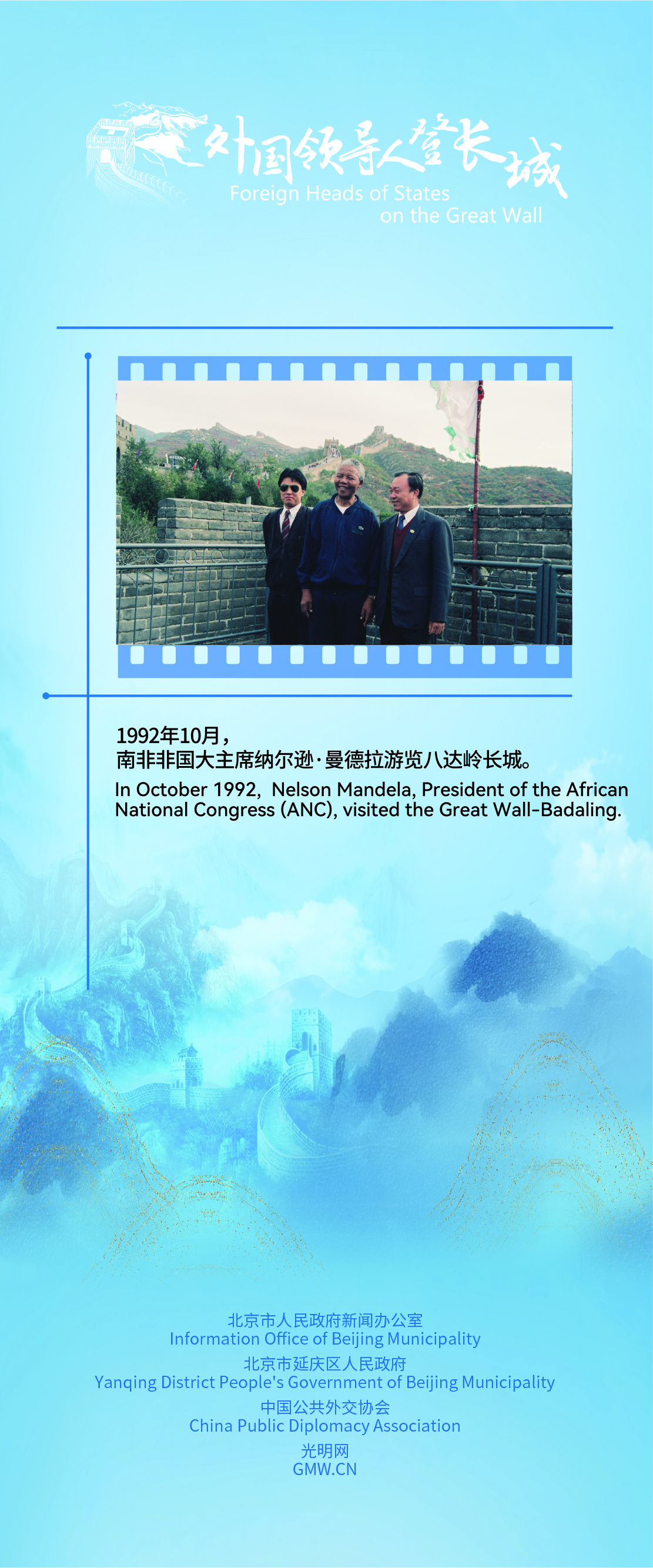
点击右上角![]() 微信好友
微信好友
 朋友圈
朋友圈

请使用浏览器分享功能进行分享

On his first trip to China, 74-year-old Nelson Mandela fulfilled his long-held wish to climb the Great Wall. He once said that he had long admired China and was eager to see its remarkable land and people. In October 1992, Mandela, then President of the African National Congress (ANC), embarked on his eagerly anticipated visit to China.
Mandela was an old friend of the Chinese people, his bond with China dates back a long time. Throughout his revolutionary journey, the wisdom and experience of China served as a guiding light illuminating his path forward. He held a particular fondness for The Art of War by Sun Tzu and had read many books about China, including Red Star Over China.
Mandela once said, “The Chinese Revolution is truly a masterpiece, an absolute masterpiece. If you understand how they carried out their revolution, you’ll believe that anything is possible. The Chinese Revolution is indeed a miracle.”
During his stay in Beijing, the 74-year-old Mandela, dressed in sportswear, climbed the Badaling Great Wall in Yanqing District, Beijing.
The Great Wall is an iconic symbol of the Chinese nation and an important emblem of Chinese civilization, embodying the unyielding spirit of self-reliance and the collective patriotism of the Chinese nation.
Standing atop the Great Wall and gazing into the distance, Mandela saw not just the breathtaking landscapes but also a profound legacy of national spirit.
On January 1, 1998, China and South Africa formally established diplomatic relations. In May 1999, Mandela visited China as the President of South Africa, making him the first South African head of state to ever visit the country. Before leaving office, Mandela visited China again. “My extensive travels to friendly nations are a gesture of gratitude. I am deeply gratified to have chosen China as the place to conclude my political career,” he said.
In this historic moment as he stood on Chinese soil and atop the Great Wall, this photograph has also become the ultimate testament to his long-standing connection with China.

